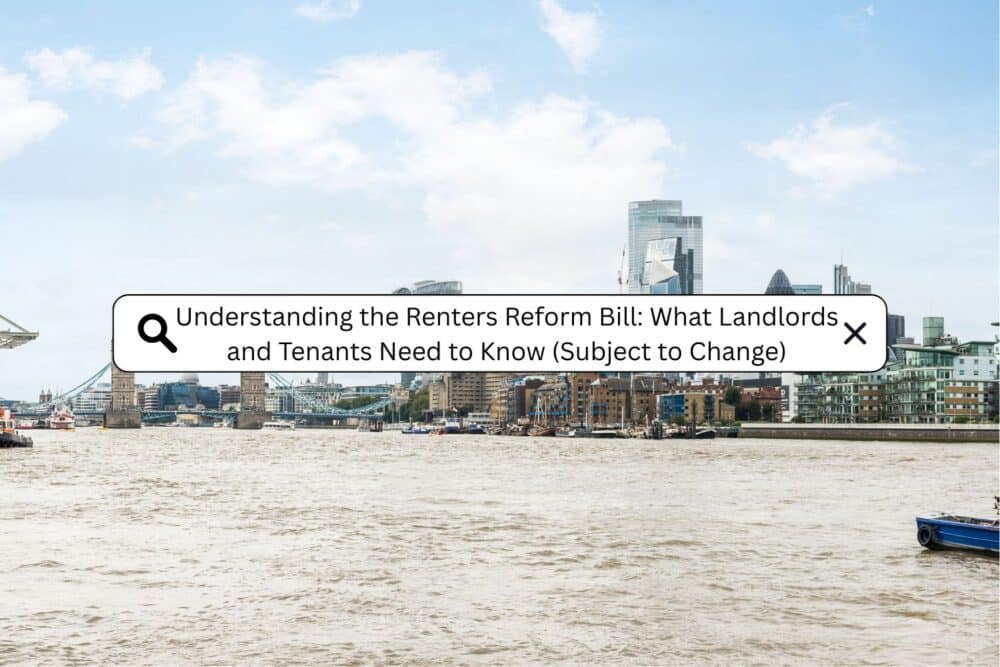
Understanding the Renters Reform Bill
The UK’s rental sector is undergoing a significant period of change, and one of the most talked-about pieces of legislation is the Renters Reform Bill. This long-awaited bill proposes sweeping reforms to the private rented sector. While it is still subject to change as it progresses through Parliament, it’s important for landlords, tenants, and letting agents across London to stay informed and prepared.
At Alex & Matteo Estate Agents, we believe in supporting our community with up-to-date guidance and practical advice. In this blog, we’ll walk you through the key proposals in the bill—including new additions such as the ban on rental bidding, anti-discrimination measures, rent controls, and Awaab’s Law—what they could mean for you, and how best to prepare for the changes ahead.
As of June 2025, the Renters Reform Bill has not yet passed into law. The details discussed in this blog are subject to change, and we recommend keeping up to date with the latest guidance from the UK government or consulting a legal advisor if you require tailored support.
Introduced to Parliament in May 2023, the Renters Reform Bill aims to create a fairer, more secure, and higher-quality private rental market. It is part of a broader strategy to rebalance the rights and responsibilities of landlords and tenants, while improving housing standards and tenant protection.
The bill includes the following reforms:
These changes are set to reshape the landlord–tenant relationship across London, especially in areas with high demand and limited housing supply.
The removal of Section 21 means landlords would no longer be able to evict tenants without providing a valid reason. Instead, evictions would need to be carried out using reformed Section 8 grounds, such as:
This change increases the importance of documentation, communication, and clear tenancy agreements for both parties.
Under the proposed legislation, all new tenancies would be periodic from day one, operating on a rolling, month-to-month basis. This replaces fixed-term contracts.
This model offers greater flexibility for tenants, who can end the tenancy with two months’ notice at any time.
Landlords will also be able to regain possession of their property, provided they serve notice using one of the valid legal grounds outlined in the updated Section 8. This change is intended to provide more transparency and balance between the needs of both tenants and landlords.
The bill proposes to ban rental bidding wars, where tenants are encouraged or pressured to offer more than the advertised rent. Instead, landlords and letting agents must list a single, fixed rental price.
This aims to create a fairer and more transparent process, particularly in competitive London markets where bidding wars have become increasingly common.
Landlords and agents will be prohibited from discriminating against tenants who are on benefits or have children. Phrases like “No DSS” or “No families” will no longer be lawful.
This is designed to promote fair access to housing for all, in line with existing equalities legislation.
5. Rent Increases and Rent Controls
The Renters Reform Bill seeks to regulate how and when rent increases can take place. While landlords will still be able to raise rents, the process will be subject to the following conditions:
This gives tenants greater protection from sudden and unreasonable increases, while still allowing landlords to adjust rents in line with market trends and property costs.
The inclusion of Awaab’s Law in the Renters Reform Bill stems from the tragic case of Awaab Ishak, a toddler who died from prolonged exposure to mould in a rented home.
This legislation will introduce mandatory timeframes for landlords to act on hazards such as damp, mould, and structural safety issues. It is expected to apply to the private rented sector as well as social housing, raising the standard of housing across the board.
Landlords should proactively inspect properties and resolve issues early to ensure compliance and tenant safety.
A new digital Property Portal will require landlords to register their properties and upload key documentation, such as:
This will improve transparency and allow tenants to check that their landlord is compliant with legal requirements.
All private landlords will be required to join a new independent Ombudsman scheme, designed to offer tenants an alternative to court when raising complaints.
The Ombudsman will have the power to issue binding decisions and financial penalties, ensuring that tenant concerns are taken seriously and resolved fairly.
Tenants will be allowed to formally request to keep a pet, and landlords must not unreasonably refuse. To safeguard property condition, tenants may be asked to take out pet insurance to cover potential damage.
This reform encourages more pet-friendly policies, reflecting changing lifestyles and tenant preferences.
Landlords across London should begin preparing for the impact of the Renters Reform Bill by:
These reforms aim to enhance renter protections and improve living conditions, but they also come with responsibilities:
Being aware of your rights and duties ensures a better experience for both sides of the rental relationship.
Although not yet law, the Renters Reform Bill signals a major shift in how renting works across the UK. From more flexible tenancies to stricter housing standards and tenant protections, the bill will reshape the London rental landscape.
At Alex & Matteo, we’re here to help landlords and tenants navigate these changes with clarity, confidence, and compliance. Whether you’re letting a property or looking for your next home, we’ll support you through this period of transformation.
